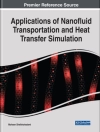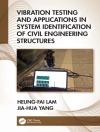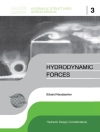This first of three volumes includes papers from the second series of NODYCON, which was held virtually in February of 2021. The conference papers reflect a broad coverage of topics in nonlinear dynamics, ranging from traditional topics from established streams of research to those from relatively unexplored and emerging venues of research. These include
- Fluid-structure interactions
- Mechanical systems and structures
- Computational nonlinear dynamics
- Analytical techniques
- Bifurcation and dynamic instability
- Rotating systems
- Modal interactions and energy transfer
- Nonsmooth systems
قائمة المحتويات
Chapter 1. Nonlinear dynamics of cross-flow heat exchanger tube conveying fluid.- Chapter 2. Approximate model of flat ribbon vibrations in the wind.- Chapter 3. Wall shear stress for an aorta with aneurysms via fluid-structure analysis.- Chapter 4. Effect of nonlinear blood viscosity on LDL transport and fluid-structure interaction biomechanics in a multi-stenosis left circumflex coronary artery.- Chapter 5. Reduced-order modelling of flutter oscillations in an aero-elastic system using scientific machine learning.- Chapter 6. Synchronization study on the vortex-induced vibrations using wake oscillator model.- Chapter 7. Effects of strong viscosity with variable fluid properties on falling film instability.- Chapter 8. Phenomenological multimode models for flexible pipelines transporting slug flows and undergoing vortex-induced vibrations.- Chapter 9. Nonlinear hydrodynamic damping of elastic vibrations of beams near a plane boundary.- Chapter 10. Hydrodynamic forces acting on cylindrical piles subjected to wind forced nonlinear water waves.- Chapter 11. A 3D nonlinear reduced-order model of a cantilevered aspirating pipe under VIV.- Chapter 12. 3D reduced order model for an orthotropic stiffened piezoelectric cantilevered flexible cylinder under VIV.- Chapter 13. Dynamics of the fluid-structure coupling model of a direct-acting relief valve.- Chapter 14. Nonlinear dynamics of spherical caps.- Chapter 15. Exploring the dynamics of viscously damped nonlinear oscillators via damped backbone curves: A normal form approach.- Chapter 16. Influence of circumferential discontinuity of an elastic foundation on the nonlinear dynamics of cylindrical shells with functionally graded material.- Chapter 17. The effect of boundary conditions on nonlinear vibrations of plates on a viscoelastic base via the fractional calculus standard linear solid model.- Chapter 18. Augmented perpetual manifolds of mechanical systems.- Chapter 19. Application of RFEM to modeling dynamics of lattice boom offshore cranes.- Chapter 20. Dynamic models of the cranes applied to offshore wind farm service.- Chapter 21. Magnetoelastic nonlinear natural vibration analysis of an annular plate in induced non-uniform magnetic field.- Chapter 22. Modelling and analysis of vibrations on an aerial cable car system with moving mass.- Chapter 23. Influence of Model Nonlinearities on the Dynamics of Ring-type Gyroscopes.- Chapter 24. Unloading the angular momentum of spacecraft using internal gravitational dampers.- Chapter 25. Studies on the liquid sloshing and rigid-liquid-flexible coupling dynamics of spacecraft.- Chapter 26. Dynamic sensitivity analysis of transient responses for nonlinear structures.- Chapter 27. Perturbations for non-local elastic vibration of circular arches.- Chapter 28. Two-scale curved beam model for dynamic analysis of masonry arches.- Chapter 29. Enriched Vlasov beam model for nonlinear dynamic analysis of thin-walled structures.- Chapter 30. Nonlinear modal analysis through the generalization of the eigenvalue problem: applications for dissipative dynamics.- Chapter 31. Continuation-based design of self-contacting soft robotic manipulators.- Chapter 32. Bayesian local surrogate models for the control-based continuation of multiple-timescale systems.- Chapter 33. Reduced-order models for shallow spherical shells: comparison of direct normal form and modal derivatives for predicting the type of nonlinearity.- Chapter 34. Parametric model order reduction for localized nonlinear feature inclusion.- Chapter 35. Nonlinear vibration of functionally graded shallow shells resting on elastic foundations.- Chapter 36. High-order approximation of global connections in planar system with the nonlinear time transformation method.- Chapter 37. Analytic methods for estimating the effects of stochastic intermittent loading on fatigue crack nucleation.- Chapter 38. Real-time data-driven method for fatigue failure prediction under stochastic loading.- Chapter 39.An improved formulation for structural optimization of nonlinear dynamic response.- Chapter 40. An improved tensorial implementation of the incremental harmonic balance method for frequency-domain stability analysis.- Chapter 41. Statistical analyses of an iterative algorithm class for dynamical systems.- Chapter 42. Wendland Xool: Simplified C++ code to compute Wendland functions.- Chapter 43. Resonances of Van der Pol Equation with parametric damping.- Chapter 44. Analysis of general piecewise-linear nonlinear systems using a hybrid analytical-numeric computational method.- Chapter 45. Analytical approximation of forced oscillations of nonlinear Helmholtz Resonator by homotopy analysis method.- Chapter 46. Nonlinear aspects of one-dimensional supersymmetry.- Chapter 47. Global stability analysis of an unemployment model with two distributed time delays.- Chapter 48. Estimating generic canard explosions via efficient symbolic computation.- Chapter 49. A study of the self-oscillating regime in the problem of an atomic force microscope in the contact mode .- Chapter 50. Non rectification of heat in graded Si-Ge alloys.- Chapter 51. Expansion of evolution matrix and Lyapunov exponents with respect to parameters.- Chapter 52. Classification of a family of Lorenz knots with reducible symbolic dynamics.- Chapter 53. An algorithm to determine the exact solution to polynomial semi-definite problems: application to structural optimization.- Chapter 54. Semi-analytical approaches for solving Duffing oscillator with multi-frequency excitation.- Chapter 55. Bifurcation and triggers of coupled singularities in the dynamics of generalized rolling pendulums.- Chapter 56. Parametric Instability and Bifurcation of Thin-Walled Axially Compressed Long FRP Columns.- Chapter 57. Analysis of nonlinear behaviors in AMB-rotor system.- Chapter 58. Characterizing fundamental, superharmonic and subharmonic resonances using phase resonance nonlinear modes.- Chapter 59. Generalized cell mappings with subdivision and interpolation (GCM-SI) for global attractors in high dimensions of nonlinear systems.- Chapter 60. Birth of the Neimark-Sacker bifurcation for the passive compass-gait walker.- Chapter 61. A degenerate double-zero bifurcation in a normal form of Lorenz’s equations..- Chapter 62. Numerical studies on the nonlinear dynamics of the Ziegler’s column under pulsating follower force.- Chapter 63. Stability boundaries for generic two-step Hill’s equations.- Chapter 64. Bifurcation studies of a nonlinear mechanical system subjected to multi-frequency-quasi-periodic excitations.- Chapter 65. A Precise Balancing Technology of the Rotor System Based on Multi Modal Analysis.- Chapter 66. Post-resonance backward whirl analysis of accelerating cracked overhung rotor system using fatigue crack model.- Chapter 67. Stochastic resonances and antiresonances in rotating mechanisms.- Chapter 68. Internal resonances of a rotating pre-deformed blade under a harmonic gas pressure.- Chapter 69. Investigation of quasi-periodic solutions in nonlinear oscillators featuring internal resonance.- Chapter 70. Theoretical investigations on an internally resonant piezoelectric energy harvester.- Chapter 71. On learning the impact dynamics of a physical beam structure coupled to a multi-stable continuum.- Chapter 72. Vibration analysis of a multi-DOF impact oscillator with multiple motion constraints.- Chapter 73. Design of NARX model for dry friction system of the three-piece bogie.- Chapter 74. A generalized solution scheme using an implicit time integrator for piecewise linear and nonlinear systems.- Chapter 75. Dynamics of discontinuous nonlinear Oscillators with Compliant Contacts subjected to Combined Harmonic and Random Loadings.- Chapter 76. Response analysis of coupled non-smooth nonlinear aeroelastic system subjected to stochastic input fluctuations.- Chapter 77. Stability analysis for a class of non-stationary impulsive switched systems.- Chapter 78. State-dependent switching law for stabilization to a switched time-delay system with two unstable subsystems.
عن المؤلف
Walter Lacarbonara
Prof. Lacarbonara received his B.S. from Sapienza University of Rome, M.S. (Engineering Mechanics) from Virginia Tech (Blacksburg, VA, USA), and Ph.D. (Structural Engineering) from Sapienza University of Rome. He is currently a Professor at Sapienza University where he has been since 1998. His research interests cover nonlinear structural dynamics; asymptotic techniques; experimental nonlinear dynamics; nonlinear control of vibrations; multiscale modeling and dynamics of nanostructured and nonlinear materials.
Bala Balachandran
Prof. Balachandran received his B. Tech (Naval Architecture) from the Indian Institute of Technology, Madras, India, M.S. (Aerospace Engineering) from Virginia Tech, Blacksburg, VA and Ph.D. (Engineering Mechanics) from Virginia Tech. Currently, he is a Professor of Mechanical Engineering at the University of Maryland, where has been since 1993.
Michael Leamy
Prof. Leamy received his B.S. from Clarkson University, his M.S. and Ph.D. from the University of Michigan, respectively. He is currently a Full Professor at Georgia Tech where he moved in 2007 as an Assistant Professor. His research interests are in emerging and multidisciplinary areas of engineering science, with an emphasis on simulating nonlinear dynamical behaviors in structures and materials.
Jun Ma
Jun Ma received his Ph.D. from Huazhong Normal University for Theoretical Physics, China, in 2010. He is Professor of Physics at Lanzhou University of Technology, Department of Physics.
J. A Tenreiro Machado
J. A. Tenreiro Machado graduated with ‘Licenciatura’ (1980), Ph D. (1989) and ‘Habilitation’ (1995), in Electrical and Computer Engineering at the University of Porto. Since 1998 he works at the Institute of Engineering, Polytechnic Institute of Porto, Dept. of Electrical Engineering where he is Principal Coordinator Professor.
Gabor Stepan
Gábor Stépán is a Professor of Applied Mechanics at Budapest University of Technology and Economics. He is member of the Hungarian Academy of Sciences and the Academy of Europe. He is the recipient of an ERC Advanced Grant. His research interests include delayed dynamical systems, stability theory, and nonlinear vibrations.












